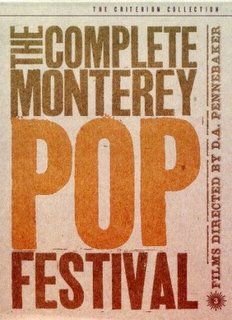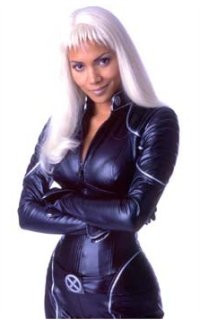
Sam Anderson's article in Slate about the way that being invited to view his friends' Netflix queues -- and their ratings -- made him feel
like an information-age window peeper, like I had dipped my toe into the shallow end of a pool whose deep end was Watergate. This feeling only intensified when many of my real-life friends refused to accept me as their Netflix friend. Though they'd talk to me all day about their DVD-watching habits—their three-month Buffy binges and methodical screenings of the entire Owen Wilson catalog—for some reason they wouldn't let me see an actual list of the actual films they were actually renting. They seemed to fear some kind of Netfloixtation.
Netflix lists and preferences may just be the most personal and revealing information you can share. To mix a metaphor, it's like the DNA of your soul. This is not who you say you are; it's who you are. The always-thoughtful ezine Flow has a worthwhile
article in the current issue about "anti-fans," about how define ourselves by what we don't like. My son likes the scene in
High Fidelity
when Barry (Jack Black) refuses to sell a record he doesn't like to a man who wants it for his daughter's birthday. "Do you even know your daughter? There's no way she likes that song! Oh oh oh wait! Is she in a coma?"
Unlike the fantasy worlds of MySpace and the blogs, it's less a social platform than a practical tool, so the data is exceptionally pure.
Anderson's piece is reminiscient of the classic
My TiVo Thinks I'm Gay, about a man who was so rattled when his TiVo kept suggesting programs with gay themes, based on what he had previously recorded that he ended up setting it for macho programs he had no intention of watching, just to reassure it (or himself) that he was, as he insisted, "the straightest guy on earth."
[H]e tried to tame TiVo's gay fixation by recording war movies and other "guy stuff." "The problem was, I overcompensated," he says. "It started giving me documentaries on Joseph Goebbels and Adolf Eichmann. It stopped thinking I was gay and decided I was a crazy guy reminiscing about the Third Reich."
It's one thing to let TiVo or Amazon form some ideas about who you are by reviewing your past selections. But inviting your friends to take a peek at your Netflix queue and the ratings of the movies you've seen is more personal than having Amazon suggest that because you bought
The Da Vinci Code you might like Harry Potter. It's even more intimate than giving your friends "family" status so they can see the pictures of your last trip on
Flickr. It's deeper than letting the world see your
eHarmony questionnaire. Everyone checks "yes" to liking walks on the beach. But how many people are willing to admit that they gave four stars to a Pauly Shore movie? Anderson says that
Some of my friends' queues were like formal French gardens: vast spectacular landscapes organized down to the smallest detail, with different genres and moods so delicately interwoven that the discs arrived at home in perfect complementary patterns. Other lists were pure wilderness: big shaggy patches of documentaries interrupted by massive blocks of anime, with scattered thrillers blooming in the middle of bright wide fields of sappy comedies. One friend seemed to be systematically testing the limits of how many Ken Burns documentaries a human being can withstand. My in-the-moment friends, I discovered—the ones who eat canned sardines for dinner and tend to let leases expire without finding new places to live—were also living hand-to-mouth on their Netflix lists (one had only three titles in her queue), while my more practical friends had lists long enough to keep them entertained for years, and—in the event of untimely deaths—to bestow upon their families generations of orderly, effort-free renting. Some lists were tortured records of cultural duty: Dense classics would march solemnly towards the top, only to be demoted (as soon as watching them became a real possibility) and replaced by season three of Felicity, until finally all the most challenging films of the 20th century were pooled at the bottom of the list like dark sediment beneath a froth of romantic comedies. It's the Netflix version of the divided soul: The end of your list is the person you want to be—Eraserhead, the eight-hour BBC Bleak House, the complete Werner Herzog—while the top is the person you actually are: Wedding Crashers, Scary Movie 4, The Bridges of Madison County.
There's a
High Fidelity-style "I am what I like" element to all of this. In my case, I publish
reviews that make it pretty clear what I think about the movies I see. But okay, I'll admit it. At the top of my Netflix list at the moment: Disc 2 of "Monterey Pop" (we have Disc 1 here right now). Come to think of it, though, that was my husband's suggestion. There are some other items added by my daughter ("Donnie Darko," "Clerks," "Bottle Rocket"), too. So I suppose what you can tell from my
Netflix queue is that I see a lot of movies in my day job and often leave the little red envelopes to the other members of the family.












